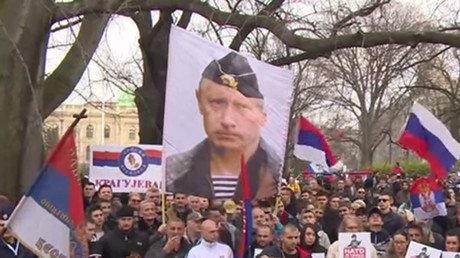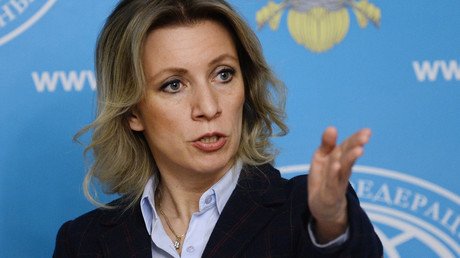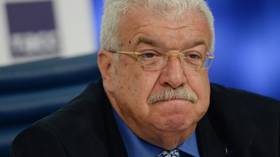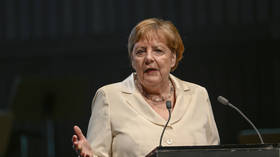Is NATO sprawl aggravating a ‘Serbian Spring’?
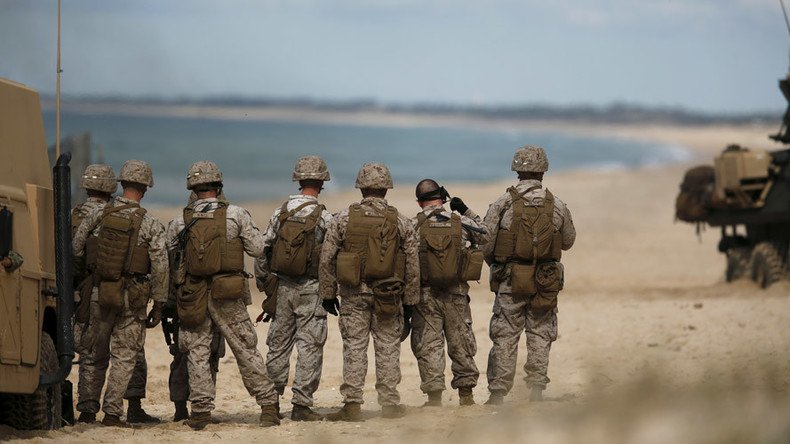
A symbolic treaty between NATO and the Serbian government has spurred mass demonstrations and calls for an alliance with Russia. With pending elections offering a choice between bad and worse, the frustrated populace is channeling the spirit of 1941.
Last week, the Serbian parliament voted overwhelmingly to ratify a treaty with NATO’s Support and Procurement Organization (NSPO). President Tomislav Nikolic signed it into law on Friday. On Saturday, thousands of protesters marched through the capital, shouting slogans against NATO and calling on Russia for help.
Some have even compared the treaty with NATO to the old Kingdom of Yugoslavia entering the Tripartite Pact in March 1941; back then, a popular revolt against the Pact triggered a long-planned military coup and enraged Hitler to the point where he delayed the attack on the Soviet Union to “wipe Yugoslavia off the map.”
Тројни пакт vs, #NATOpic.twitter.com/FDWBBNMwbO
— Бошко_РС (@Shkabo1) February 16, 2016
What gives? According to Serbian military experts, the agreement merely creates “logistical interoperability” between Serbia and the alliance. It is the Status of Forces Agreement (SOFA), signed by the previous government and ratified by this one last March, that actually allows NATO personnel free passage across Serbia and immunity from taxes, fees and prosecution. Yet the NSPO deal may be the proverbial straw that broke the camel’s back.
Serbian outrage stems from being under NATO’s heel over the past two decades, from the alliance’s intervention in the Yugoslav wars, to the bombing of Serbia in 1999 and the subsequent occupation of its province of Kosovo. NATO powers have been at the forefront of demanding Serbia recognize Kosovo’s “independence,” declared in 2008.
“Our policy is clear,” Serbian Prime Minister Aleksandar Vucic argued, “Serbia is an independent, sovereign state that wishes to cooperate with both the Russian Federation and NATO.”
The response of most Serbians to this is, frankly, unprintable. First elected on a platform of patriotism, the increasingly unpopular Vucic has spearheaded a policy of capitulating to the endless demands from the EU, US and NATO, while tempering it with symbolic gestures of friendship towards Russia. Opportunities for Serbia to profit from its neutrality by trading with Russia usually get ruined by the government’s sanctioning of fraud and dirty tricks – such as labeling EU apples as Serbian to duck the agricultural sanctions.
Even if Vucic is some sort of genius statesman, balancing Serbia precariously between Moscow and Washington – as some cautious columnists have argued – after four years of this kind of behavior, the general public simply does not believe it any more.
Vucic himself has a habit of praising the “Protestant work ethic” and telling the Serbs to “be more like Germans.” It does not help that his “reformation” from a Radical to a Progressive – literally, as those were the names of his parties – was midwifed by the US, and that he is widely perceived as but the latest in a long line of stooges at the helm of Serbia, ever since the October 2000 coup that served as the template for all “color revolutions” thereafter.
In the upcoming general election in April, Serbians will have a choice between Vucic and those who think he is not capitulating to NATO fast enough. The few parties that oppose the country’s slow digestion by the NATO-EU Leviathan could not even get into parliament. They have alleged voter fraud, but even if there was none, almost all the media in the country are owned by pro-NATO interests, and blast their messages accordingly.
One of the more cynical arguments in favor of the latest pact is that Serbia “needs NATO to protect the Serbs” in Kosovo. Critics swiftly countered that it was NATO who delivered the province to the terrorist KLA, causing the exodus of a quarter of a million non-Albanians; it was NATO who failed to protect Serb villages, churches, and cemeteries, desecrated or dynamited or torched by the hundreds since 1999; and it was NATO that for three days in March 2004 failed to stop the 50,000-strong mob from rampaging across the province. Were it not for NATO, the residents of Kosovo would not need ’protecting’ from the KLA to begin with.
Allying with Russia would make Serbia a target, NATO partisans argue, adding that the country needs to join NATO to avoid another 1999. “We’re either at the table, or on the menu,” says Vuk Draskovic, once considered a nationalist and now a fervent member of the NATO cult.
Many Serbs point out the same reasoning was used by the government that tried to capitulate to Hitler in 1941. “We were never a Russian client, yet we’ve been in NATO’s sights for over two decades now,” wrote one dissident blogger. “I can’t see how it could get any worse.”
Friday’s killing of two Serbian diplomats – held as hostages by Islamic State terrorists in Libya – by US bombs only underscores this insane logic of insisting that one’s tormentor is really a benefactor, which the Russian Foreign Ministry spokeswoman rightly compared to the “Stockholm syndrome.”
So, Saturday’s protest was not about a minor administrative treaty, but about a decades-long train of lies and abuses. It was a cry for help from a people who believed the seductive lie that the 1990s were their fault and that NATO, EU and “liberal democracy” would fix everything, only to realize that everything they touched turned to ash. These people have watched with horror as the West used Serbia’s surrender to justify the invasions of Iraq and Libya and support fanatics in Syria and Ukraine. But the latter two examples also showed them that resistance is not futile – not anymore.
Nebojsa Malic, for RT
The statements, views and opinions expressed in this column are solely those of the author and do not necessarily represent those of RT.
